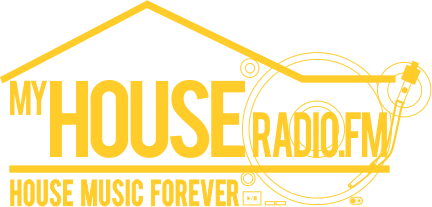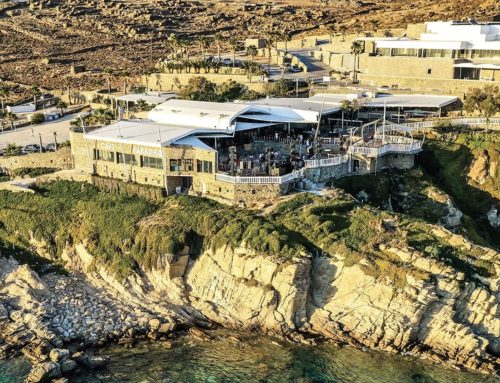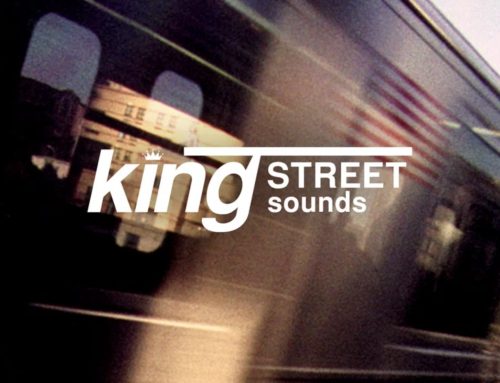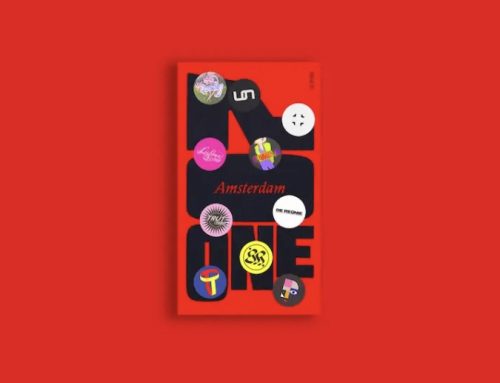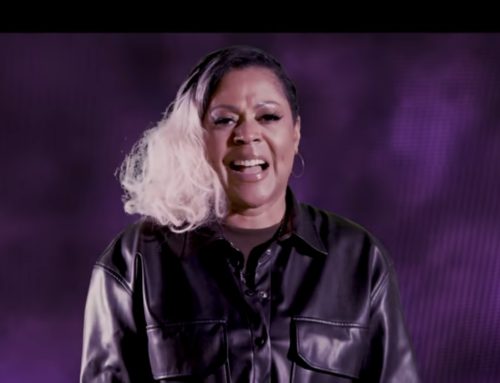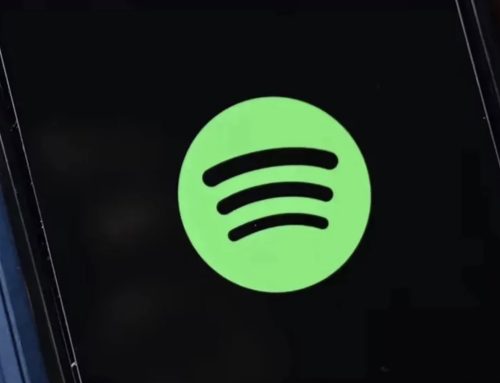
Chip E and Carl Cox remake Time To Jack and Chicago House Music lore of Frankie Knuckles and Ron Hardy in the studio.
He was the man who encouraged and helped co-produce Frankie Knuckles’ first track “You Can’t Hide.” He was in the studio with Ron Hardy when he did his very first mix “Donnie” alongside Larry Heard, Robert Owens and Harri Dennis. He was also the only DJ to have played all three venues of the Paradise Garage, the Power Plant and the Music Box.
But most of all, Chip E is known for his historically lauded House anthem “Time to Jack” which through a fortuitous stream of events has received a second coming via Carl Cox’s new documentary on Netflix.
So many things to ask! Carl Cox told you that “Time to Jack” was the first Tech House record and the record that made him want to be a DJ?
I’d heard Carl say in one of his Red Bull Music Academy interviews that “Time to Jack” was the first Tech House record, but when I got an email about licensing it for a film he’s in, I was blown away. Carl has a huge collection of records and has been DJing for over three decades, so for him to remember my little dance record from 1985, well that’s really special.
What’s your relationship with Carl Cox, did you know him or any of the other heavyweights prior such as Martin Garrix, Richie or Tiesto?
Well today, I can tell you Carl is one of my best friends. I’ve stayed at a couple of his homes around the world, and we’ve recently gone on a three hour road trip to a car show. I think cars are one of our mutual passions that made us closer than just music collaborators. He’s started introducing me to some of the other heavies in the scene, like Joseph Capriati and Russell Small. I’m sure when we introduce our new record at Ultra Music Fest, that I’ll run into more of the A team.
Right now with Techno having a kind of the second resurgence (although some may say that it never left), there are quite a few arguments on whether something is Tech House or Techno. What’s your take on it?
Honestly, all the sub-genres of House are pretty confusing to me. I really see all modern dance music based on a 4/4 beat as being a descendant of House. Not only are the sub-genres confusing to me, but I think to a lot of people. If you look at the Deep House charts on Traxsource versus Beatport, you’ll hear two very different styles entirely. Personally, I just like to play good music.
Your track was the first record to ever use the word “Jack” in reference to dancing. Can you tell us how you think the word Jack came into play? Was it from a certain club, a certain group of dancers maybe?
I can’t claim to have created the term. I first started hearing it when I was going to the Music Box. At first, people would say, “Jack the box, Ronnie,” referring to Ron Hardy DJing, and later people would use “jacking” to refer to the hardcore style of dancing people would do at the Music Box and Power Plant (Frankie Knuckles’ second club in Chicago). It was especially used to refer to the way people would dance solo, with a speaker or a pole on the dance floor.
Can you give us a brief rundown on how you created this seminal track?
To be a good DJ meant not only having great records, but having exclusive records. What’s more exclusive than bringing a drum machine, keyboard and sampling pedal to your gig? This was very high-tech in those days. My first drum machine was a Boss Dr. Rhythm, my keyboard was some cheap Casio keyboard, and I had a Roland digital delay and sampling pedal that held less than a half second of sampling time. Even though it was a very basic setup, it was enough to differentiate myself from other DJs and to start making my own music.
My friend Kurt Landrum kept telling me I should make a record. I sold my Technic SL1200MK2 turntables so that I could afford a little eight-track studio in the NW suburbs of Chicago. I convinced a DJ I respected named Eric ET Taylor to come along as well as a friend and DJ named Joe Smooth. Joe would always come in the store and tell me about the cool new music gear he had. Somehow, before they were released to the public, Joe Smooth had an Ensoniq sampling keyboard. Not only did it have more sampling time than my pedal, but now you could play samples across the keyboard.
With my posse and gear ready, we headed to Reel to Reel studios in Villa Park, Illinois. In one day we put together the entire Jack Trax EP. The plan was to record “Time to Jack” and a few drum patterns I knew DJs would like…but after we started going and the creativity was flowing, I put on a beat, played an accidental baseline and we all looked at each other and said “YEP.” That’s when I recorded the vocal sample for “It’s House.” We knew when we walked out of the studio that we had something VERY special.
I convinced my mother to loan me the money from her tax return so that I could have the record pressed on vinyl. Before we could get the records back, I went to a local pressing plant that I didn’t trust to press the records without ripping me off (I also didn’t trust their quality control) but I needed an test-press or what was called an acetate. It wold cost me $50 and it was only a temporary record. With each play, the record would degrade until after 50 plays or so it was unusable.
In 1985 $50 bucks was a lot of money to a college student. I paid it and the next weekend took the record to Chicago’s infamous Rush Street. There was a party there and Farley “Funkin” Keith was the DJ. I knew Farley from Importes, Etc and when I gave him the acetate to play he took a quick listen in the headphones and then almost slam mixed it in. As soon as the beat hit, he had the crowd’s attention, but when the vocal came in and said “Time to Jack” the crowd went crazy.
So going back to the present, Carl sought you out and you were his guest at Movement… tell us about that and what you have cooking with him.
It was kind of a “mutual seeking.” He first sought me out to license “Time to Jack” for a film What We Started which is about him and Martin Garrix primarily but also includes Hawtin, Tiesto, and others. Then, I sought him out to see if he wanted to discuss a remake. He was as excited about the idea as I was, and he thought we should have a formal face to face meeting at Movement in Detroit. I was really amazed at how we just hit it off. It was like we’d known each other for 20 years. I guess, through music, we have met before. Anyway, he told me he was building a new studio in Australia and wanted to record the song there. We kept in touch during construction, and then in October, I headed to Melbourne. We did a complete ground-up remake of “Time to Jack,” now called “Time 2 Jack” and even re-did the vocal sample. The vocal sample was originally Joe Smooth (he just has a great radio kind of voice and with him being older than me, his voice was a little deeper than mine). For the remake, we’ve layered in my voice. I really like the way we freshened up the tune to introduce to the new generation.
And as for this documentary, have you seen it? What kind of story does it tell?
I’ve seen clips of the documentary, but not the entire film. It’s based around the story of Carl Cox kind of handing the Ibiza Space Club baton to Martin Garrix, but it’s really a chronicle of three decades of dance music, as told by Eric Morillo, Pete Tong, Paul Oakenfold, Moby, Richie Hawtin, Tiesto, and a bunch of other top DJs and producers on the scene. It’s going to be screened at Ultra Music Fest and will be airing on Netflix in April.
I think for a lot of underground House and Techno fans, they tend to dismiss the bigger EDM stars because they feel like they’ve sold out somehow. Yet many probably don’t realize how much they truly value and appreciate those who paved the way for them…
I can’t speak for all of them, but I know guys like Moby, Carl, Russell Small, and Joseph Capriati show me a lot of love and appreciation for my efforts, and they can all run down a who’s who of early Chicago house music. Those guys are the truth.
How did you end up working with and co-producing Frankie Knuckles’ first record “You Can’t Hide”?
Frankie Knuckles and I had become friends because he was a regular customer at Imports, Etc, a record store in Chicago that catered to DJs. I was one of the employees and eventually helped with the buying/selecting process. I knew what Frankie’s crowd liked, and what Frankie liked. He trusted my selections for him. As a matter of fact, he didn’t shop like most people. When there were songs I thought he’d like, I’d put them in a special bin for him. When he’d come in, if he had time I’d play some for him. If he didn’t have time, he’d just pay for them (we’d throw in some free promos) and leave with his package. That trust was a great foundation for our friendship.
After I started making music, I wanted to share the joy and rewards with my friends. Frankie was actually afraid to make music at first. I told him I’d help along the way, and make it easy for him. I found a Latin band that had a great brass and percussion section. I did the electronic drum programming (Roland TR-909) and Joe Smooth and I laid down the keyboards. Frankie picked the song to cover, as well as selecting Ricky Dillard to sing on it.
Once we were all in the studio, it was like a family dinner, except with beats instead of food. I guess the beats were our food.
And then with Ron Hardy, you were in the studio on his first mix “Donnie,” how did that go down?
This one is a really funny story. I can’t even remember how I met Harri Dennis. Could’ve been at the Music Box, probably was. Anyway, Harri was always telling me he wanted to make a record. Well, that’s great, but there’s a lot of people that want to make records. I mean, Harri didn’t play any instruments or even know how to program a drum machine. He wasn’t a DJ. He was a guy that wrote some pretty “out there” poetry.
After months and months of being bugged by him, one morning he came by and woke me up way too early. I was like, “Enough is enough.” When he asked this time, I went over to the keyboard, hit a couple of keys and said, “There, that’s your baseline, you like it?” Actually we both liked it. Again, this wasn’t like I kept playing different variations. I just hit some keys, sequenced it, and started building from there.
The “Donnie” sessions were actually before I collaborated with Frankie. Ron Hardy (we always called him “Ronnie,” but never “Ronnie Hardy”) was also a close friend. Ron would always support my music and always (intentionally or accidentally) found interesting ways to play my and other music. He was also a friend of Harri’s. We invited Ronnie to attend the session and do a mix on “Donnie.” Ronnie had never been in a recording studio before, but he had already been playing the demo of the song on reel-to-reel tape.
At the session, there’s two guys I’d heard about but never met: Larry Heard and Robert Owens. They knew my music, I knew theirs, but we’d never met. Both of these guys were talented as fuck. Larry added a keyboard part, and was gonna play it through the entire song. I was like wait a minute bro, don’t you wanna sequence that? He’d never used a sequencer before. I was blown away. I’d been playing his “Mysteries of Love” and had no idea it was all played by hand. I remember talking to him a couple of months ago and he still thanks me for introducing him to sequencing.
As for Robert, oh my Buddha! What can I say, his voice is amazing even to this day. It was just another one of those magical sessions where everything lined up.
Are you the only DJ in the world that played Ron Hardy’s Music Box, Frankie Knuckles Power Plant, and Larry Levan’s Paradise Garage, and what are your greatest memories from each?
I’m probably one of a handful of people that actually attended parties at US Studios (Warehouse was just a nickname for Frankie’s first club in Chicago) as well as the Music Box, Power Plant and Paradise Garage. But yeah, I did short opening sets for Ron Hardy at the Music Box, as well as for Frankie at the Power Plant, along with jumping in if they needed a bathroom break, and I performed at the Paradise Garage. I didn’t know Larry Levan well at all, but he was a huge fan of my music, especially “Like This.” For Frankie and Ronnie to trust me behind their decks, well that was a lot of trust and a huge honor, even to this day. Everybody in the city wanted to command their crowds. It was like being on top of the world when you were in one of their DJ booths. It was a magical experience.
